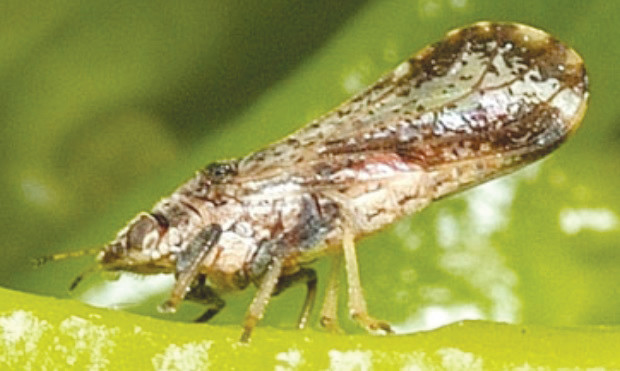Parasitic wasps to help stop citrus disease
GREEN COVE SPRINGS – Who knew that hope could come from the sight of a small wasp?
Citrus greening, also known as Huanglongbing, has been a devastating disease to Florida’s citrus industry …
This item is available in full to subscribers.
Attention subscribers
To continue reading, you will need to either log in to your subscriber account, or purchase a new subscription.
If you are a current print subscriber, you can set up a free website account and connect your subscription to it by clicking here.
If you are a digital subscriber with an active, online-only subscription then you already have an account here. Just reset your password if you've not yet logged in to your account on this new site.
Otherwise, click here to view your options for subscribing.
Please log in to continueDon't have an ID?Print subscribersIf you're a print subscriber, but do not yet have an online account, click here to create one. Non-subscribersClick here to see your options for subscribing. Single day passYou also have the option of purchasing 24 hours of access, for $1.00. Click here to purchase a single day pass. |
Parasitic wasps to help stop citrus disease
GREEN COVE SPRINGS – Who knew that hope could come from the sight of a small wasp?
Citrus greening, also known as Huanglongbing, has been a devastating disease to Florida’s citrus industry for more than a decade as it has continually dropped yields and led to the decline of many homeowner trees.
This bacteria enters the leaves and then blocks the trees’ ability to transport sugars and nutrients over time causing yellowing of leaves, necrosis of branches, oblong fruit, fruit quality decline and eventually tree death. The carrier for this disease is the Asian Citrus Psyllid, a small brown leafhopper-like insect that feeds on citrus leaves by sucking out sugars. Along with the sugar, this means they may also carry the greening bacteria from tree to tree.
Overall, few treatments have been shown to be effective in treating for this disease or the psyllid, with a large focus on finding and developing resistant varieties of citrus. However, there is a new tool to help in the management of this pest.
The Florida Department of Agriculture and Consumer Services is making the Asian Citrus Psyllid parasite Tamarixia radiate available for homeowners, in an attempt to stop the spread of citrus greening.
Florida residents can apply online to the department for tiny parasitic wasps called tamarixia that feed on the Psyllid and lay eggs inside young psyllids. When the tamarixia lay eggs, it kills the Psyllid and, hopefully, the bacteria that cause the disease.
The tamarixia release program is one of several tools researchers and growers use to slow greening’s spread, including pesticides, to kill the disease-causing bacteria and hydroponic systems to keep infected plants healthy.
Tamarixia will not eradicate the psyllid but it should be effective where wasps can fly between trees on different properties in an urban area. It should also be noted that with beneficial releases, the population of wasps will vary as the quantity of their psyllid food source changes.
If you are interested in participating in this program, visit www.freshfromflorida.com/TRA for the application and more information.
If you have any questions contact the University of Florida/IFAS Clay County Extension Office at (904) 284-6355 or email them to IF-SVC-Clay-MG@ad.ufl.edu.








